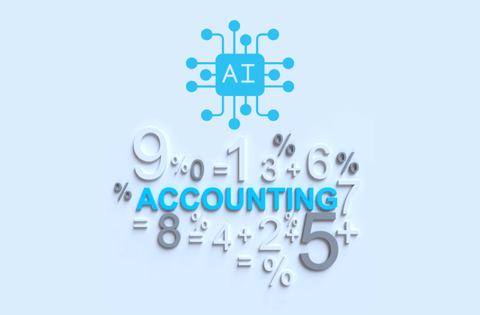What is Accounting: Meaning, Types & Why It Matters

Accounting is the backbone of every business therefore when it comes to business you probably know what it is. So this drills down to business accounts where there are sales, purchases, incomes and expenses, and profits and losses.
They are often known as accounts transactions which are recorded in the books of accounts
What is Accounting?
Accounting simply means keeping records and managing the accounts of an organization or business.
However, it also refers to collecting and analyzing various financial information of a business ensuring the smooth functioning of the day-to-day financial activities.
The recorded transactions exist in the form of journal entries which are further used by accountants for bookkeeping purposes and preparing financial statements.
Financial statements in accounts provide a succinct overview of financial activities during a specific period, condensing a company’s operations, financial status, and cash movements.
By reading the books of accounts auditors finally can get a fair idea of the financial health of a business.
Why it is important for your business?
If you are a business owner you already know how important is accounts for your business.
Without accounts, you would not be able to take care of your customers and vendors, nor you would know the financial position of your business at any given point in time.
As a result, it can even become critical for you to respond to business requests that deal with receipts and payments.
Therefore accounts truly play a major role in managing, growing, and maintaining the integrity of a business.
Moreover, It is not only about recording transactions but also about understanding the financial performance of your business, complying with tax laws, planning for the way ahead of the financial year, and more.
Accounting is considered the most important backbone of any business.
Without proper accounts, any organization can face financial issues such as mismanagement of income and expenses legal problems, and loss of opportunities.
Types of Accounting
There are different types of accounts in the world of corporate finance and each of these accounts serves different purposes and industries.
And here are some of the types of accounts that are more commonly used:
1. Financial Accounting
This type of account involves the systematic recording, summarizing, and reporting of financial information which means it emphasizes external reporting obligations ensuring transparency and accountability to various stakeholders
One significant aspect of financial accounting is that it adheres to Generally Accepted Accounting Principles (GAAP) or International Financial Reporting Standards (IFRS).
These guidelines provide a framework for recording transactions consistently across organizations, promoting comparability and reliability in financial statements.
Three main financial statements are prepared under financial accounting they are the balance sheet, the income statement, and the cash flow statement.
The balance sheet shows the assets, liabilities, and equity of an entity at a specific point in time.
The income statement shows the revenues, expenses, and profits or losses of an entity in a period.
While the Cash flow statement shows the cash inflows and outflows of an entity over some time.
2. Management Accounting
Unlike financial accounting, it is not subject to GAAP and can be prepared using a variety of methods, depending on the needs of the users.
This often involves creating specialized reports that cater to the specific needs of internal stakeholders.
Management accounting is geared toward assisting business managers, executives, and internal stakeholders making them informed about business decisions.
Therefore the main objectives of management accounting include planning, control, performance management, cost analysis, decision support, resource allocation, and risk management.
Reports include variance analysis, performance dashboards, activity-based costing reports, and more.
3. Cost Accounting
Cost accounting involves Identifying all of the costs associated with a product or service. Classifying the costs into different categories, such as direct costs, indirect costs, fixed costs, and variable costs.
It also includes measuring the costs of each category and analyzing costs to identify areas where savings can be made.
Plus it reports the costs to management in a way that is easy to understand and use.
Cost accounting is utilized by management for decision-making, which aids in budgeting, cost control, and potentially enhancing net margins.
This involves analyzing both variable costs associated with each production stage and fixed costs like lease expenses.
Unlike financial accounting, which serves external stakeholders, cost accou nting is tailored to aid in internal decision-making within the organization.
Therefore it isn’t bound by standardized regulations like GAAP.
Cost accounting methodologies include standard costing, activity-based costing, lean accounting, and marginal costing.
Entrepreneurs and managers depend on actionable insights before making allocation choices, and cost accounting uniquely supports this decision-making process through its adaptability to individual company requirements.
4. Tax Accounting
It is a field of accounting that is focused on the preparation and management of taxes, tax laws, and tax regulations.
This type of account is slightly different from financial accounting as it deals more with tax compliance for businesses.
Tax accounting is a subset of financial accounts because without it taxes wouldn’t exist not tax, accounts, and compliances.
The primary goal of the tax is to ensure that a business complies with the tax laws of its jurisdiction while optimizing its tax liability within legal boundaries.
Tax accounting involves various processes, calculations, and strategies to accurately determine the amount of taxes a business owes and to report this information to tax authorities.
The key aspects of tax accounting include tax planning, tax compliance, record keeping, tax reporting, and tax audits and appeals.
It also looks after the changes in tax laws, tax credits, international taxation, tax strategy development, and year-end and quarterly tax activities.
Different Ways To Manage Accounting for Your Business
Managing business accounting involves various approaches and methods, depending on the size and complexity of the business, its industry, and its specific needs.
Here are some of the different ways to manage business accounting:
1. Do Manual Accounts:
This is where many of us start. You might use traditional ledger books, which are just handwritten records of your transactions. It is reliable in a way, but it is slow. The next step up is usually spreadsheets. You use software like Microsoft Excel to maintain records and create basic financial statements. It is flexible, but be careful. One broken formula can throw off your whole month.
2. Keep In-House Accountants or Bookkeepers:
On the other hand, if you are growing fast, you might need someone full-time. Employing in-house accountants means you have a person dedicated solely to your transactions and reporting. They are right there down the hall or on Slack whenever you have a question.
3. Use a Hybrid Approach:
You do not have to pick just one. Many businesses combine in-house personnel with robust accounting software. This gives you the control of having staff on hand with the flexibility of modern tools.
4. Develop Custom Software (If Required):
Sometimes off-the-shelf just does not work. If your business has really unique processes, you might develop custom accounts software. It is an investment, but it ensures the system fits your requirements perfectly.
5. Use AI in Accounting:
This is less about robots and more about saving your brain power. AI shifts the accountant’s role away from the boring transactional stuff like data entry. Instead, you get to focus on the analytical side, interpreting the data and advising on strategy.
6. Collaborate With Tax Professionals:
Taxes are their own beast. Collaborating with professionals like CPAs is essential to ensure you are compliant with tax laws. Plus, they are usually the ones who find the strategies to help you save money come tax season.
7. Freelance Accountants and Virtual CFOs:
You might need high-level advice but cannot afford a full-time executive salary. Engaging a Virtual CFO or a freelance accountant gives you that financial guidance and strategic oversight without the overhead of a full-time employee.
8. Implement ERP Systems:
For large companies, accounting does not live in a vacuum. Implementing comprehensive ERP systems like SAP or Oracle integrates your accounting with every other function, from supply chain to HR.
9. Explore Blockchain Technology:
It sounds futuristic, but it is becoming real. You can explore blockchain-based accounting solutions for better transparency. It creates a secure, unchangeable record of financial transactions.
These are some of the few ways to manage accounts for your business.
However, the choice of accounting management method depends on factors like the size of the business, its budget, its level of financial complexity, and its specific goals.
Small businesses may find software like QuickBooks Online sufficient, while larger enterprises might require more extensive ERP systems or dedicated accounts teams.
It’s essential to assess your business’s needs and resources to determine the most suitable approach to manage accounting effectively.
Different Terminologies in Business Accounting
Accounting terminologies are terms used in the field of accounts and finance.
The most important terms in business accounting are the ones that are frequently used and they are essential for understanding the financial statements of a business.
Therefore it’s important to understand terms such as:
- Assets: Anything of value that a business owns, such as cash, inventory, and property
- Liabilities: Debts that a business owes, such as accounts payable and loans
- Equity: The owner’s investment in the business, plus retained earnings (profits that have not been distributed to the owners)
- Income: The money that a business earns from its operations
- Expenses: The costs that a business incurs to generate income
- Profit: The difference between income and expenses
- Loss: The opposite of profit; when expenses are greater than income
- Revenue: Another term for income
- Depreciation: The allocation of the cost of a long-term asset over its useful life for tax and accounting purposes
- Accounts Receivable: Money owed to the business by customers for goods or services provided on credit
- Accounts Payable: Money the business owes to suppliers or creditors for goods or services received on credit
- Cost of goods sold: The direct costs associated with producing the goods or services that a business sells
- Gross profit: The difference between revenue and cost of goods sold
- Operating expenses: The costs that a business incurs to operate, such as salaries, rent, and utilities
- Net income: The difference between gross profit and operating expenses
- Net loss: The opposite of net income; when operating expenses are greater than gross profit
- Accounting period: The length of time for which financial statements are prepared, such as a month, quarter, or year
Accounting Terms That Business Owners Should Know
Now that you know some of the basic terminologies here are some other terms that every business owner should know:
- Trial balance: A list of all of the accounts in a business’s general ledger and their balances
- P&L Statement: A financial statement that summarizes revenue, expenses, and net income or loss over a specific period.
- Balance sheet: A financial statement that shows the assets, liabilities, and equity of a business at a specific point in time
- Income statement: A financial statement that shows the revenues, expenses, and profits of a business over a specific period
- Accrual Accounting: A method where revenue and expenses are recognized when earned or incurred, regardless of when cash is exchanged
- Double Entry System: A system where each financial transaction affects at least two accounts, ensuring that debits equal credits
- Cash Accounting: A method where revenue and expenses are recorded when cash is received or paid
- Cash flow statement: A financial statement that shows the cash inflows and outflows of a business over a specific period
- Chart of accounts: A list of all of the accounts that a business uses to track its financial transactions
- General ledger: A book that records all of the financial transactions of a business
- Closing entries: The entries that are made at the end of an accounting period to close out the temporary accounts
- Posting: The process of transferring information from the journal to the ledger
- Amortization: The gradual reduction of an intangible asset’s value over time
- Auditing: The process of examining the financial records of a business to ensure that they are accurate and complete.
- Accounting standards: The rules and regulations that govern how financial statements are prepared and presented
Frequently Asked Questions: FAQs
What is the purpose of accounting?
The purpose of accounting is to systematically record, analyze, and communicate financial information about an individual or organization’s economic activities.
Some of the specific purposes are to measure and record financial transactions, communicate financial information to stakeholders, help managers make decisions, comply with regulations, and to detect and prevent fraud
How does bookkeeping differ from accounting?
Bookkeepers do bookkeeping while accountants do accounting. Bookkeeping only records financial transactions, while accounting processes financial transactions by summarizing, analyzing, and interpreting financial information.
Bookkeeping focuses on the details of financial transactions, but accounting focuses on the big picture of the financial health of a business
What is an accounting equation?
This equation, also known as the basic accounting equation or the balance sheet equation is a fundamental principle in accounts.
It is expressed as assets equal liabilities plus equity. The equation is always balanced. This means the total value of the assets must always equal the total value of the liabilities plus the total value of the equity.
What are accounting ratios?
Accounting ratios also known as financial ratios or financial metrics, are quantitative measures used to evaluate and analyze a company’s financial performance, position, and various aspects of its operations.
Some of the common accounting ratios are current ratio, quick ratio, debt-to-equity ratio, return on assets ratio, and return on equity ratio.
Other ratios are liquidity ratios, solvency ratios, profitability ratios, activity ratios, market ratios, operating efficiency ratios, dividend yield, and payout ratios, and return on investment (ROI) ratios,
What is an accounting cycle?
The accounting cycle is a series of sequential steps or processes that businesses and organizations follow to record, classify, and analyze financial transactions and ultimately prepare financial statements.
It typically consists of the following steps such as identifying and recording transactions, posting transactions, preparing trail balance, making adjustment entries, preparing financial statements, closing, and starting the new period.
What are the major accounting software platforms?
Some of the major accounts software platforms include QuickBooks, Xero, ZohoBooks, Wave, FreshBooks, and many more.
What are accounting ethics?
Accounting ethics are a set of principles for accountants that they need to follow. Organizations such as AICPA and the ICAEW promote accounts ethics to guide on ethical issues.
Some of the fundamental principles of accounting ethics are based on the values of honesty, integrity, confidentiality, due care, and professional behavior, and not violating any ethical laws that could damage the reputation of an individual or organization
What skills are required for accounting?
Some of the common skills required for accounts are math’s and analytical skills, problem-solving skills.
Accountants must also have good computer skills in using spreadsheets and other software and knowledge of accounting software is a must.
However, the specific skills required for accounts will vary depending on the specific job role and the industry.
What is the future of accounting?
The future of accounting is changing rapidly due to AI and other technological advancements.
Therefore accountants need to be adaptable to learn to use advanced accounting systems using AI and willing to learn advanced analytics such as data analytics and data visualization.
Right now what we can see as the key trends that are expected to shape the future of accounts are the increasing use of AI systems and the rise of automation, the growth of big data, the increasing importance of data analytics, and the growing importance of ethics.
Related Resources:
5 Best Open Source Accounting Software for Small Business 2026
What is an Accounting System? Accounting Components, Types and Examples
Best Accounting Software in India 2026: Features, Pricing & GST Compliance
8 Best Cloud-Based Accounting Packages for Indian SMEs (2026)
Top Free Accounting Software Options for India GST
7 Ground Challenges of Adopting & Migrating to Cloud Accounting
The 5 Best AI Accounting Software for Small Business
Best Accounting Apps Online To Improves Cashflow and Profitability
The CAs Tech Stack: 5 Best Accounting Software for CA Firms in India 2026



